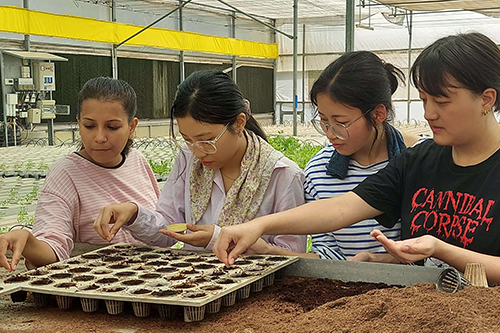
Vertical Farming to Meet Fresh Food Requirements of Burgeoning Urban Populations
Vertical farming is indoor multilayered hydroponic production systems operated under controlled environments. It is estimated that by the year 2050, two out of every three people globally would be living in urban areas and in order to meet their requirements of fresh horticultural foods, vertical farming systems would hold immense potential. This is essentially so because multiple layers of plants stacked vertically would provide maximum yield per unit square meter of space and utilise maximum vertical space compared to single layer horizontal production systems both in open fields or in tunnel production systems. Moreover, vertical farming being an indoor agriculture (IA) shall be free of the risks posed by climate change.
Vertical Farming- How to Start: Advantageous as the vertical farming is, to meet the futuristic needs of rapidly increasing urban populations, start of the same is not as straight forward as in case of open field conventional farming, mainly because vertical farming is highly knowledge based and to be a sure shot success one has to be thoroughly trained before venturing into this area of horticultural production. Institute of Horticulture Technology’s, School of Hydroponics is a leading organisation in India where all stake holders i.e. entrepreneurs, farmers, industry personnel, extension workers, students and persons from IT sector are trained on all aspects of vertical farming through its online and offline courses of various durations.
Vertical Hydroponic Farming in India: Indoor vertical farming appears the best solution for meeting the rising demands for fresh food with limited natural resources, yet the energy cost for running the vertical horticultural food production systems could be too high to be sustainable. Therefore, under Indian conditions vertical hydroponic systems need to be based on renewable energy such as Solar energy, fortunately, Institute of Horticulture Technology under its School of Hydroponics has researched and demonstrated the use of Solar energy for running its hydroponic systems. Moreover, in India where there is plenty of sunlight available throughout the year, hybrid vertical hydroponic production systems may be more desirable.
Add Comment
Your Email address will not be published
Your Rating : Please Select